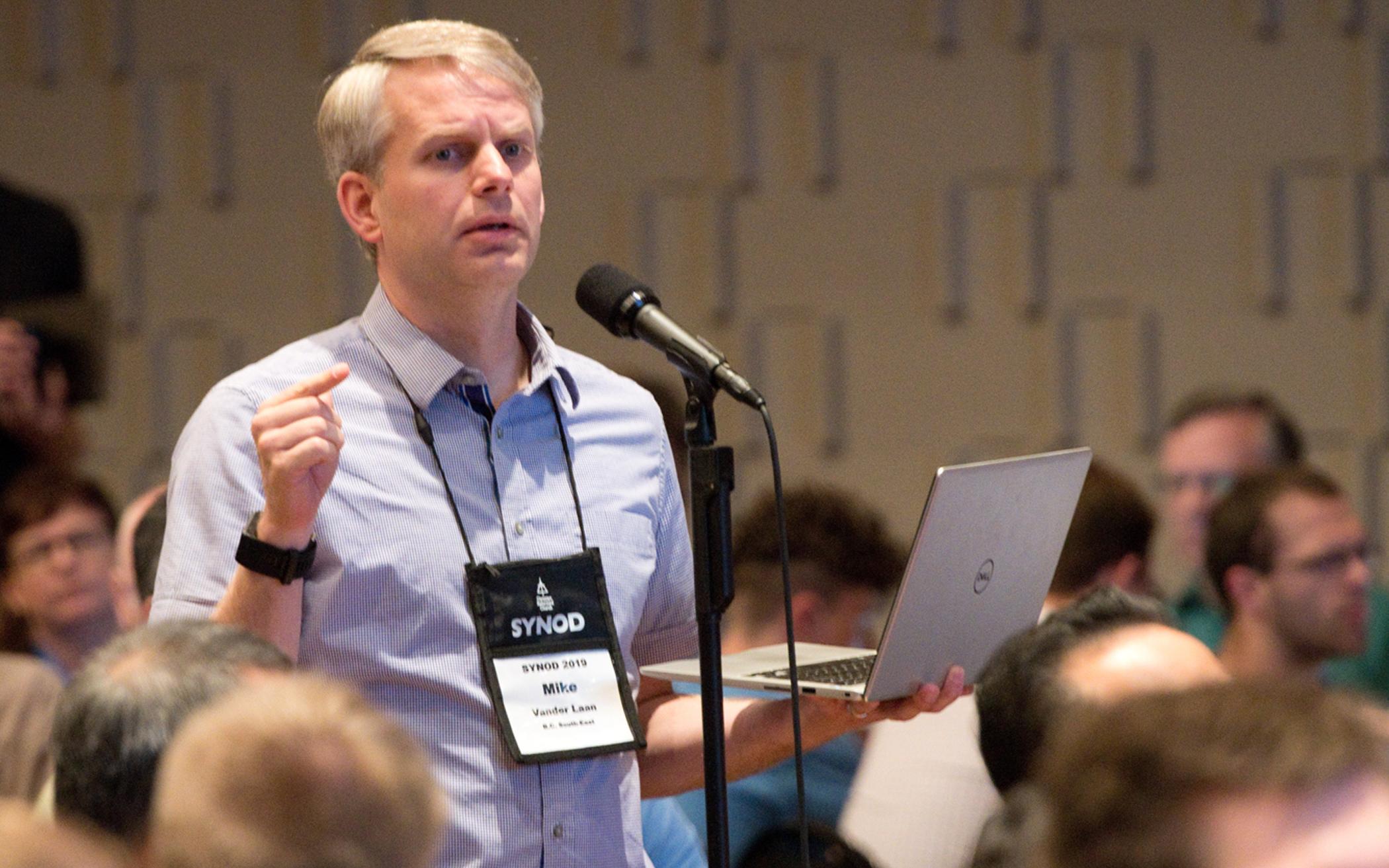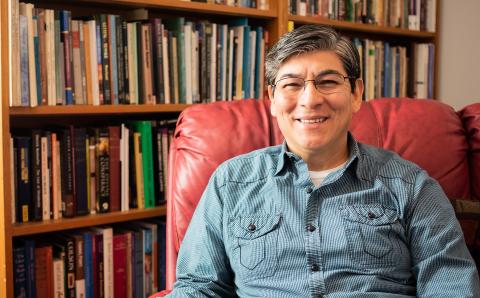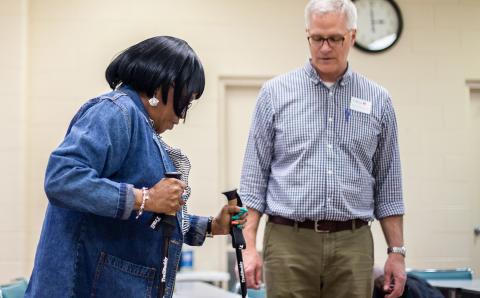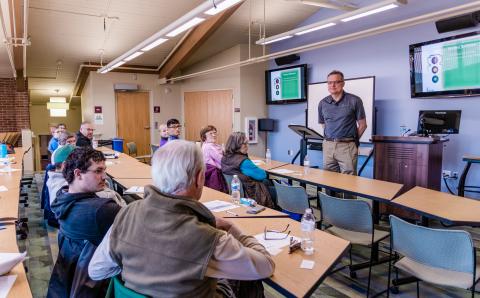Synod 2019 has moved ahead on stronger requirements to address abuse of power that happens all too often in the church. It accepted the report from the Christian Reformed Church’s Addressing the Abuse of Power Committee, asking the Council of Delegates to form a committee to implement many of the recommendations. (Synod is the general leadership meeting of the CRC, and the Council of Delegates acts in between synod’s annual meeting.)
The implementation will include creating training on abuse of power for pastors, creating a code of conduct for employees, and taking steps to prevent abuse in CRCNA offices.
Further to that, synod directed the executive director to develop a policy for the minimal use of nondisclosure agreements; encouraged classes to provide funds for counselling services to survivors of abuse (and required annual reporting on this); mandated record-keeping of reported cases; and asked the COD to establish a team “that would act as a guardian of our commitment to foster a culture characterized by respect for all and mutual service.”
The Addressing Abuse of Power Committee was mandated by Synod 2018 to address issues brought forward at that synod. (See Coming to Synod 2019: Recommendations to Prevent Abuse of Power)
Significant Changes
Joel Vande Werken, Classis Atlantic Northeast, said these actions were significant and wondered if synod should withhold action on the creation of the additional guardian team.
Mike Vander Laan, Classis B.C. South-East, said, “This is urgent. We are dealing with abuse all the time.” He referenced the Safe Church Ministry report in the Agenda, noting that it has only one and a half full-time equivalent staff and it fielded 700 phone calls from congregations last year. “We need to have an outside body that can step in as necessary to help us see what we might not see otherwise,” Vander Laan said.
Speaking about the code of conduct, which synod has asked to be created by the new committee, Harrison Newhouse, Classis Lake Superior, said although “the word of God, the movement of the spirit and the laws of God ought to be enough, [I] know from experience and the realities of today [that] I like to have the body of Christ to help give me guidance.”
The draft code of conduct, along with recommendations for how it will be implemented across the denomination, in the classes, and in the churches, will come to Synod 2020 for consideration.
Training Officebearers
Synod also encouraged all classes to develop a strategy to train officebearers and key church leaders on recognizing abuse of power, and it accepted guidelines for that, asking the executive director “in cooperation with Safe Church Ministry … and others” to develop a resource toolkit for such training.
Stanley Groothof, Classis Iakota, supported the development of training for officebearers, emphasizing that definitions will need to be clear. We will need to “recognize specific markers where informal admonishment or formal discipline ... crosses the line to an abuse of power,” he said. “The more clearly we can define and identify [what constitutes an abuse of power] and be trained in this, the better church leaders will be able to avoid it from happening,”
Strengthening Safe Church Ministry
In order to strengthen Safe Church Ministry, synod asked the executive director to oversee a review of the ministry’s “policies for follow-up in reported cases that involve church leaders,” reporting to the COD to ensure the CRCNA is “exercising due diligence.” Synod also asked that “measures for responding effectively to emotional abuse” be developed and that the COD “examine in detail the potential for conflicts of interest in current safe church procedures and to evaluate the need for and benefits of using outside experts to deal with situations that have a high potential for conflicts of interest.”
Jake Porter, Classis Holland, asked who would define what constitutes a conflict of interest, noting that “the church has a history of not seeing a conflict of interest where it [perhaps] should have.” Paul De Vries, chair of the council of delegates, said the COD does not work at this alone, but on behalf of synod. “Everything the COD does comes back to you,” DeVries said.
Implementation Committee and Guardian Team
According to the guidelines approved by synod, the committee implementing the recommendations will include “members from the offices of Candidacy, Pastor Church Resources, Safe Church Ministry, Calvin Theological Seminary, and Calvin College (because of available expertise).”
Members of guardian team would be “outside the ‘chain of command’ within the established organizational and management structure” and would be “accountable through reporting to the Council of Delegates.” The guardian team’s mandate would include early intervention in response to complaints, conflict resolution, and restorative justice tools. The role of the team would be reviewed after three years for effectiveness.
Resources for Culturally Diverse Churches
In taking on all these recommendations, synod asked the executive director “to give high priority” to providing information and policies for abuse prevention and response in various languages and cultural styles appropriate to the minority-population churches existing in the CRC. José Rayas, Classis Arizona, asked how these things would be made accessible to all the different ministries, especially as new ministries in different cultural contexts arise, and who would bear the cost.
Colin Watson, the CRC’s director of ministries and administration, spoke about the networks of minority churches self-formed within the denomination, such as East Meets West (Chinese churches) and SEAPI (South East Asian Pacific Islander network). These would play a role. “We are working within our ministries to ensure we are reaching out and getting input on how effective this strategy is,” Watson said.
What’s it Going to Cost?
Budget implications for the recommendations were included in the report of the Addressing the Abuse of Power Committee, totaling roughly $60,000. (See the last page of Appendix C in the 2019 Agenda Supplement) To the question of whether there was a plan to fund that amount, Steve Timmermans, the CRC’s executive director said, “The budget of the coming year has already come to fruition … we did not budget in anticipation of this. I suspect we can juggle and try [to find the funds.] … So if we add something, it does beg the question ‘what aren’t we going to do?’” That question was left unanswered.
Synod closed its time discussing the Abuse of Power report with a moving time of worship and lament .
Cary Gephart, Classis Illiana, reminded delegates of the importance of the work done by Addressing the Abuse of Power Committee and what they’ve done for the denomination. “We are praying for the day that abuse of power ends in the CRC.”
Synod 2019 is meeting at Calvin College in Grand Rapids, Mich., from June 14-20. For continuous coverage from our award-winning news team, download the Banner app on your mobile device or follow The Banner Magazine on Facebook or @crcbanner on Twitter. You can find more tweeting by following hashtag #crcsynod. News stories will be posted on The Banner’s dedicated Synod web page several times daily. Unless noted otherwise, all photographs are by Karen Huttenga.
About the Author
Alissa Vernon is the news editor for The Banner.









